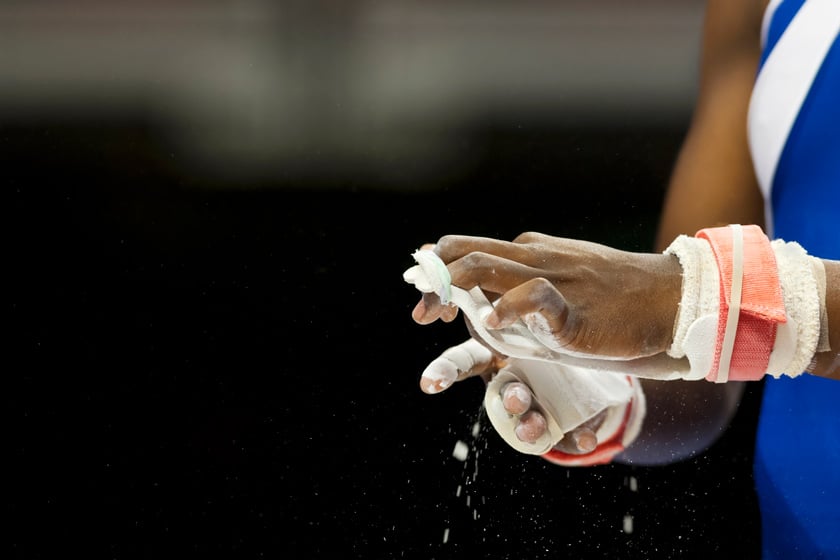NBA player Kevin Love. Tennis star Naomi Osaka. NASCAR driver Cody Ware. The list goes on.
What unites these athletes and so many others isn’t just their superstar status. It’s that they’ve each struggled with mental health challenges. And they’re not afraid to talk about it.
Everyone is going through something that we can’t see.
—Kevin Love
“Everyone is going through something that we can’t see,” wrote Cleveland Cavaliers power forward Love in a powerful essay about the mid-game panic attack that convinced him to finally pay attention to his mental health. He ended up on the floor of the trainer’s room feeling like he couldn’t breathe.
The experience was a turning point. Love says he felt terrified in that moment that people might find out about his anxiety. Yet it was the nudge he needed to finally get help. And since then he’s become an advocate for others getting that help, as well.
It’s OK to not be OK.
—Naomi Osaka
It was a dream-come-true when Naomi Osaka defeated her idol Serena Williams to win the U.S. Open in 2018. At just 20 years old, the young tennis player had caught the attention of the world. She would go on to a No. 1 ranking the following year. But success hasn’t come without struggle.
Osaka has spoken about “long bouts of depression” she’s experienced since. In 2021, Osaka pulled out of the French Open after she was fined for skipping a news conference after her first-round win. “I communicated that I wanted to skip press conferences at Roland Garros to exercise self-care and preservation of my mental health,” she said. “Athletes are humans.”
You have to wake up every day to make a decision to get better, to seek help.
—Cody Ware
NASCAR driver Cody Ware went through a dark period as a teenager, and got involved with the wrong crowd, he says. At age 15, a group of bullies soaked his legs with gasoline, set him on fire, and left him stranded in the woods. While he was ultimately rescued and given medical care for his third degree burns, the mental toll has been long lasting, he says.
Following his father into the world of racing proved to be an escape. But it didn’t erase the mental health issues he battled. “I had a lot of unhealthy coping methods. I was a shut in, would barely leave the apartment,” he says. “Just sort of getting angry over stupid things. I wanted to pick a fight or get into an argument over pretty much anything.”
Finally he took his mom’s advice to get help, and he’s doing better now. Still, it wasn’t an easy fix. “You have to wake up every day to make a decision to get better, to seek help.”
I’m trying to navigate my own unique mental health journey.
—Simone Biles
Being an Olympic gymnast is high-pressure in the best of times. Add being heavily favored to win and competing during a global pandemic, and the stakes are even higher. And then there’s the underlying trauma of having been sexually assaulted at the hands of a team doctor.
With all that, it may not be surprising that 2021 was the year that Simone Biles, widely known as the greatest gymnast of all time, hit her limit. At the Olympics, she had panic attacks and a mental block she called “twisties” that made her feel disoriented in air. She put her mental health first, bowing out of both the team event and the all-around individual events in Tokyo.
So many people think we’re almost like an action figure and you just wind us up and we go.
—Michael Phelps
Michael Phelps is the most decorated swimmer of all time, with 28 Olympic medals to his name. He also has two DUIs, and spent time in rehab after the second one. He was suspended by USA Swimming for 6 months after being photographed holding a bong. He’s been diagnosed with ADHD, and struggles with depression and anxiety.
In recent years Phelps has become an advocate for mental healthcare. “As a male athlete, I always thought it was a sign of weakness if I showed I was being vulnerable,” he says. “It’s not weakness. If we’re injured, they’re going to fix our broken bones, but if we’re mentally struggling, we have to get help.”
What about you?
You don’t have to be a world-class athlete to be worthy of getting the mental health care you need. If panic attacks or symptoms of PTSD are keeping you from living your life the way you want, Freespira may be able to help. Connect with a Freespira advisor to find out more.
05516 Rev A



